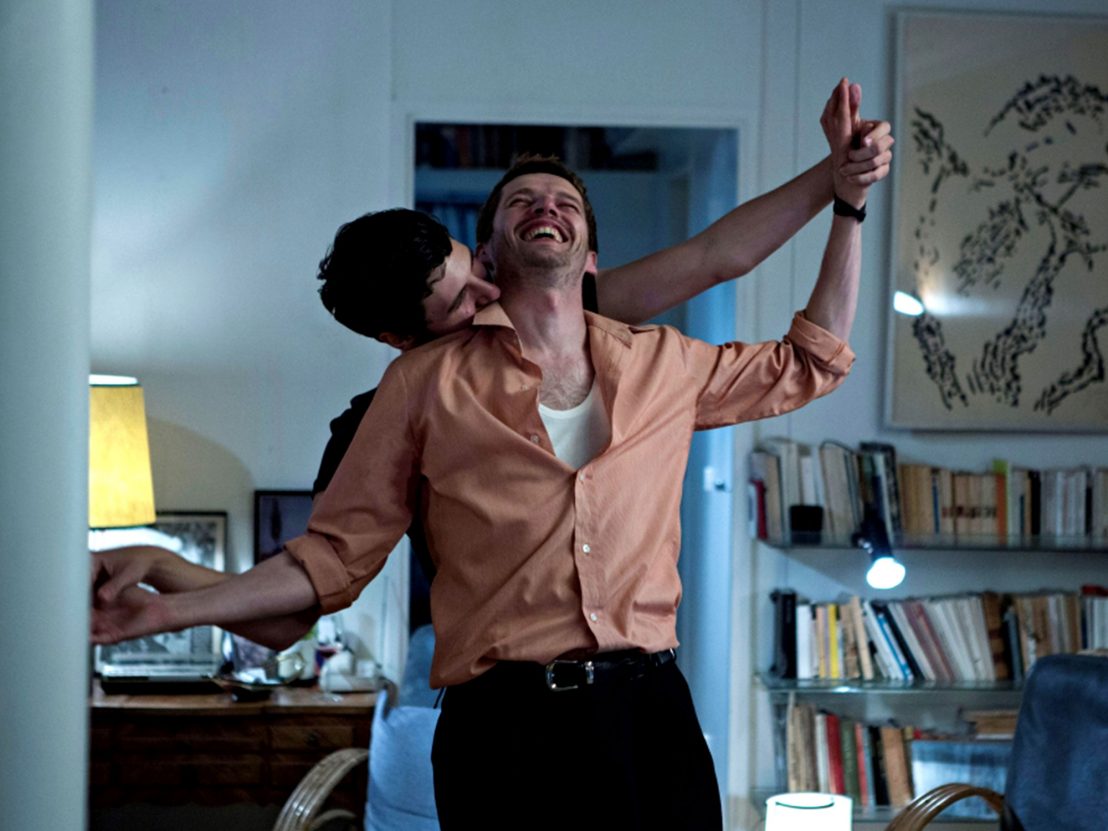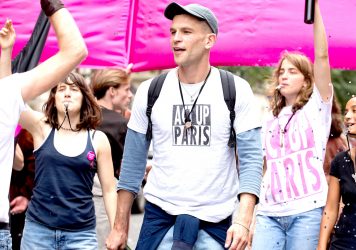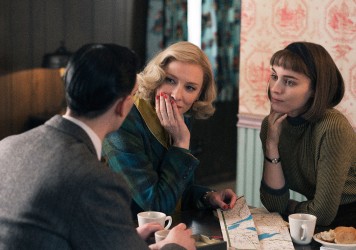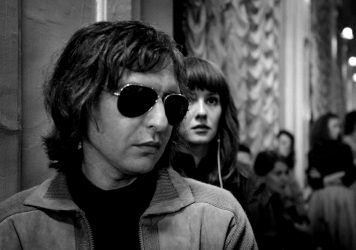
This eloquent and expressive gay romance from Christophe Honoré is one of the director’s finest achievements.
There was a point in the mid-2000s where Christophe Honoré was all set to become knighted as a household name among a beloved phalanx of urbane, crowd-pleasing French auteurs. He had a stockpile of great ideas, a ironic sense of humour, an encyclopaedic knowledge of art and pop culture, and a one-film-a-year work ethic. And then, at the moment of his inauguration, he just didn’t turn up, scurrying back to the fringes for close to a decade of noodling, experimentation and films which felt more like playful sketches than robust artworks.
Well, as you can probably guess from this somewhat hackneyed (re)introduction, Honoré’s back, baby, and his new film, Sorry Angel, sees him newly invigorated and mobilising all of his qualities as a maker of droll, quietly affecting and perceptive human dramas. What’s initially striking about this expansive new feature is its rich, almost novelistic screenplay which takes time to lavish in the detail of intense conversation. Interactions here are hard-fought: a person who is deserving of more than a wayward glance also deserves the rare joys of a refined and extended dialogue.
Ailing bisexual author Jacques (Pierre Deladonchamps) rarely decides to pick up his phone, leaving his many lovers and paramours to plead their case on his answering machine. It’s the early ’90s and, as the film opens, he has yet to bare the full physical and psychological brunt of his Aids diagnosis. He manages to transcend the stigma of the disease, floating cheerily through life as an cosmopolitan man of letters and still doing his utmost to keep his sex life interesting. At a film screening of Jane Campion’s The Piano, he meets cute with “little Breton queer” Arthur (Vincent Lacoste), a free spirit with an unabashed sentimental streak.
The film loosely charts the complications of their romance, though it deals in small increments rather than broad strokes. It’s far more interested in the almost military logistics of burgeoning passion – the question of how far Jacques should allow Arthur into his life – than any conventional strains of lugubrious melodrama. There’s probably not a single scene or sequence which stands out on its own, but that’s perhaps part of what makes this film so good: its dedication to a delicately heightened form of realism which never pulls you away from the intensity of the moment.
Despite its potentially gloomy subject matter, Sorry Angel is an affirmative and sometimes jubilant film. It says that there are no complicated people, only complicated situations, and it’s heartening to see a drama based around combustible stand-offs which are all resolved (or, at least, alleviated) through careful expression and captivating repartee.
Jacques makes for a formidable central character, one who is trapped in a moment where both past and future are visible to him though those in his personal orbit. He displays a giant poster for Rainer Werner Fassbinder’s swansong, Querelle, in his lounge, and maybe there’s an overlap in these two lonesome souls whose lives are suddenly enveloped in, and quickened by, the prospect of passion and death.
Visually the film does what it needs to do, and Honoré uses careful framing and editing to keep the lengthy dialogue exchanges engaging. There are hot soundtrack cuts by such anglophile ’90s favourites as Ride, The Sundays, The Cowboy Junkie and, of course, there’s M|A|R|R|S’s Pump Up the Volume replete with funky body-popping. There’s a beautiful moment where Arthur, taking a tourist trek through Paris, visits the grave of François Truffaut, placing a tender hand on the cool marble as if grieving for a fallen parent.
Yet this film’s surfeit of compassion, and the way it channels human drama through social history, connect it to the linage of another French maestro who is very much still alive: André Téchiné.
Published 11 May 2018

Robin Campillo’s stirring AIDS activist drama is a vital reminder of the power of protest.

Inspired by Todd Haynes’ Carol, explore our potted history of great films that depict gay lives on screen.

This shapeless, drama-free dirge through the rock scene in 1980s Leningrad has no place in the Cannes competition.